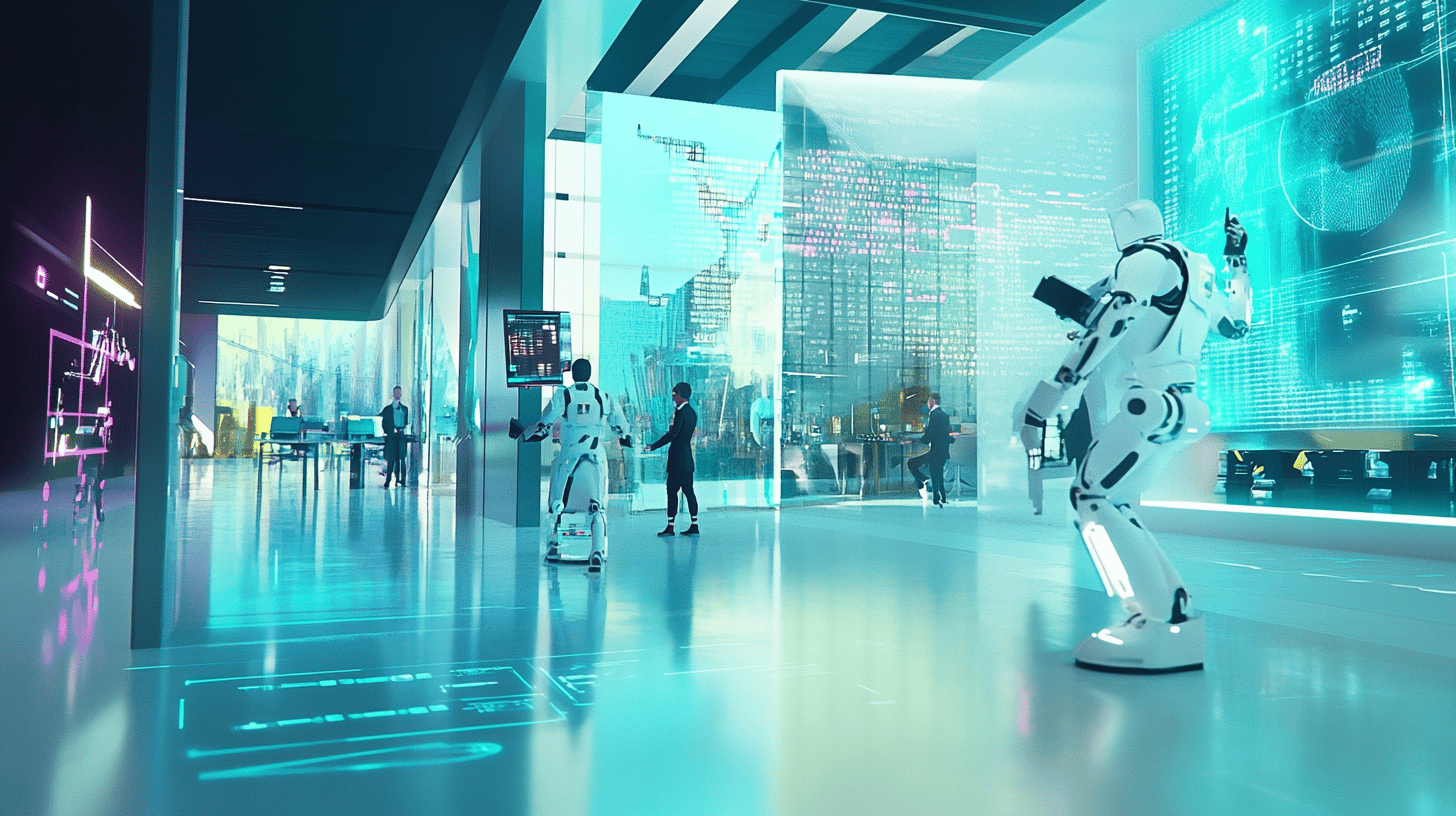In recent years, the job market has undergone significant changes, driven largely by technological innovations. Digital transformation is not just a passing trend; it is here to stay, shaping the way we work, collaborate and communicate. In this article, we will explore 10 technologies that promise to revolutionize the job market by 2030, offering a clear vision of the future of jobs and companies.
1. Artificial Intelligence and Machine Learning
Artificial intelligence (AI) and machine learning are arguably the most transformative forces of our time. These technologies enable machines to learn from data, identify patterns, and make predictions. In the workplace, AI can automate repetitive tasks like data analysis and customer service, freeing up employees for more creative and strategic tasks. The use of chatbots in customer service, for example, is already a reality, and this number is only expected to grow in the coming years.
2. Remote Work and Virtual Collaboration
The COVID-19 pandemic has accelerated the adoption of remote work, and this trend is set to continue. Virtual collaboration tools such as Zoom, Slack, and Microsoft Teams have proven to be essential for maintaining team productivity and engagement. As technology advances, we will see a rise in platforms that facilitate remote team communication and management, making effective collaboration possible no matter where individuals are located.
3. Augmented and Virtual Reality (AR/VR)
These technologies aren’t just for gaming: AR and VR are quickly becoming valuable tools in training and professional development. Imagine hands-on virtual classrooms where employees can learn new skills in a safe, controlled space. Additionally, these technologies can be used in meetings and presentations, providing an immersive and engaging experience.
4. Advanced Robotics
Robotics is becoming increasingly intelligent. Collaborative robots, or cobots, are designed to work side by side with humans, assisting with tasks ranging from manufacturing to logistics. These robots can perform dangerous or physically demanding jobs, increasing workplace safety and allowing humans to focus on activities that require critical and creative skills.
5. Blockchain and Data Security
Data security is a growing concern for businesses, and blockchain offers an innovative solution. This technology, known for its use in cryptocurrencies, can also be applied to a variety of industries, such as financial operations, tracking systems, and smart contracts. With cyber threats on the rise, ensuring that data is protected through blockchain techniques will be crucial for businesses in the future.
6. Internet of Things (IoT)
IoT is transforming the way we interact with the world around us. Connected devices can collect and share data in real time, providing valuable insights for businesses. In the workplace, IoT can be used to streamline operations and improve equipment maintenance. For example, sensors on machines can predict failures before they happen, increasing efficiency and minimizing downtime.
7. 5G and Increased Connectivity
With the advent of 5G technology, internet speeds will increase exponentially. This will allow businesses to adopt cloud solutions more effectively and enable applications that rely on high connectivity, such as video conferencing and AR/VR, to run without interruptions. Improved connectivity could also facilitate greater collaboration between global teams, making remote work even more viable and productive.
8. Big Data Analysis
Collecting data has never been easier, but the real skill lies in analyzing it and extracting meaningful insights. Big data analytics allows companies to better understand consumer behavior, improve their strategies, and make more informed decisions. In the workplace, this could mean understanding which collaboration methods work best or how to optimize internal processes.
9. Continuous Learning through Educational Technologies
Education is evolving with technology. Distance learning and personalized learning are becoming the norm, allowing employees to improve their skills anytime, anywhere. Online education platforms, adaptive courses, and microlearning are just some of the solutions that are changing the way we learn and develop professionally.
10. Quantum Computing
Although still in its early stages, quantum computing has immense potential to transform entire industries. This technology can solve complex problems that would be impossible for classical computers, which could lead to significant advances in areas such as finance, medicine, and logistics. Companies that embrace quantum computing could benefit from significant competitive advantages over time.
Conclusion
Understanding and adapting to these technologies will be key to success in the workforce through 2030. As these innovations continue to shape the way we live and work, those who are open to change and invest in their skills will be best positioned to thrive in this new landscape. So start familiarizing yourself with these trends today and prepare for the future! Don’t forget to share your thoughts and comments on the technologies you believe will have a significant impact on your profession.
This is an incredible opportunity for all of us, and the digital age has only just begun. Let’s make the most of this transformation and embrace the possibilities that the future holds for us!


